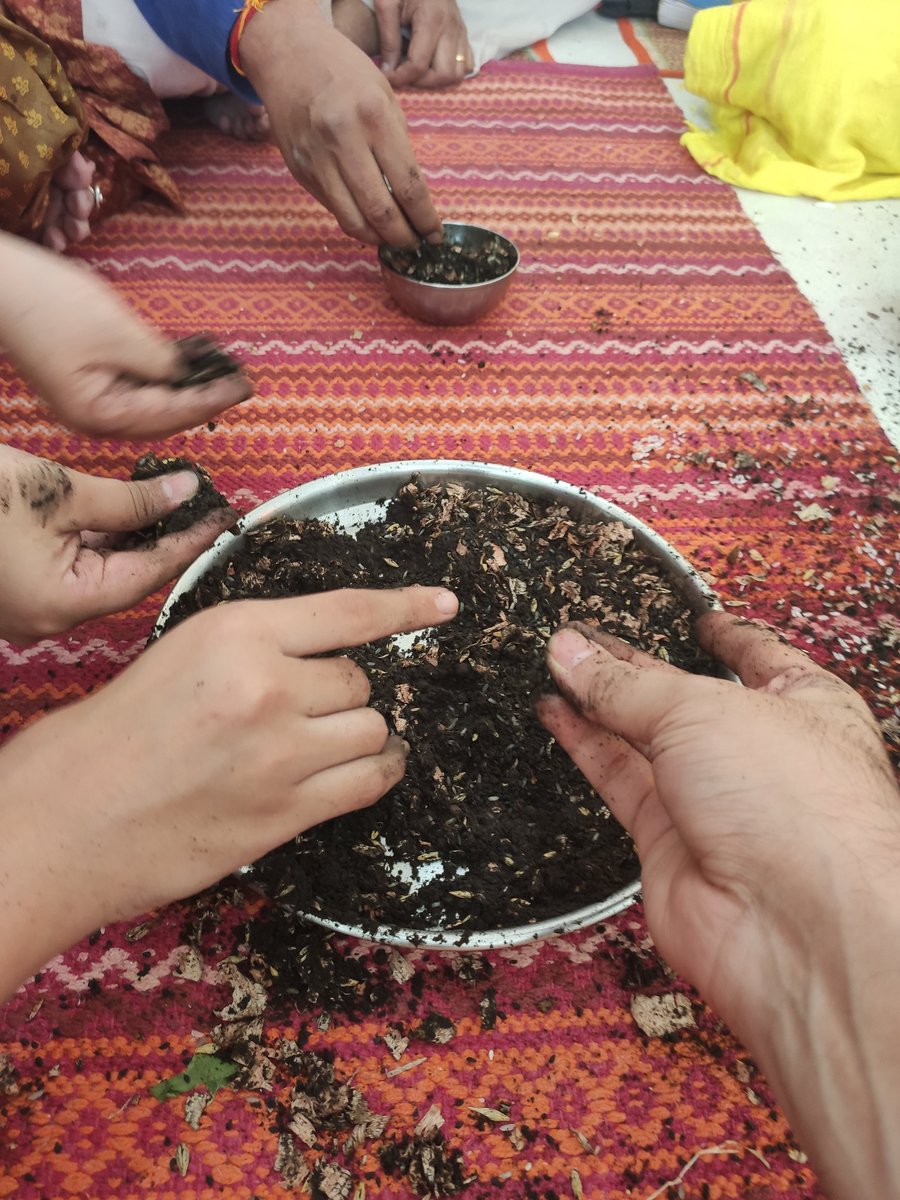
This thread is full of schoolboy errors. This is what happens when people who have no basic knowledge of Sanskrit grope in the dark and imagine meanings.
Let us see the blunders in this thread, one tweet at a time.
1/n
Let us see the blunders in this thread, one tweet at a time.
1/n
https://twitter.com/Schandillia/status/1460984734696173570
Claim: "हन्यन्ते derives from हंत्व".
Truth: हन्यन्ते is a verbal conjugation: 3rd-person plural (प्रथमपुरुष-बहुवचन), present tense (लट् लकार), passive voice (कर्मणि प्रयोग), from √हन् = “to kill” and also “to strike” (Apte).
हन्यन्ते is not from हंत्व
Truth: हन्यन्ते is a verbal conjugation: 3rd-person plural (प्रथमपुरुष-बहुवचन), present tense (लट् लकार), passive voice (कर्मणि प्रयोग), from √हन् = “to kill” and also “to strike” (Apte).
हन्यन्ते is not from हंत्व
https://twitter.com/Schandillia/status/1460984752370905090
हन्त्व is an adjective, from which one gets inflected forms like हन्त्वः हन्त्वौ हन्त्वाः. हन्यते is a conjugation, from root हन्, from which we get conjugations like हन्यते हन्येते हन्यन्ते in passive voice. Our scholar cannot tell a verbal conjugation from an inflected form!
Another stupid claim. Our scholar things गावो is from गावी. गावो can never result from गावी.
गावो (गावः) is the nominative plural inflection of गो whose forms in nominative case are गौः गावौ गावः.
गो means cow, bull, and ox—all three (Apte).
गावो (गावः) is the nominative plural inflection of गो whose forms in nominative case are गौः गावौ गावः.
गो means cow, bull, and ox—all three (Apte).
https://twitter.com/Schandillia/status/1460984761170624516
Another illogical fallacy. अघासु cannot qualify गावो (गावः) as they are in different cases: अघासु is in locative case and गावः in nominative.
अघासु = during मघा [constellation]. अघा = Maghā (Monier-Williams).
Wilson, Griffith: अघासु = “In Magha days”
अघासु = during मघा [constellation]. अघा = Maghā (Monier-Williams).
Wilson, Griffith: अघासु = “In Magha days”
https://twitter.com/Schandillia/status/1460984771731857415
Finally, does the mantra talk about killing cows/bulls/oxen or whipping/striking them?
The commentary by Sāyaṇā is clear. As per Sāyaṇā, the mantra refers to whipping with a stick to goad them. “हन्यन्ते” = दण्डैस्ताड्यन्ते प्रेरणार्थम्।
Wilson has followed Sāyaṇā.
n/n
The commentary by Sāyaṇā is clear. As per Sāyaṇā, the mantra refers to whipping with a stick to goad them. “हन्यन्ते” = दण्डैस्ताड्यन्ते प्रेरणार्थम्।
Wilson has followed Sāyaṇā.
n/n

Satvalekar has also followed the commentary of Sāyaṇā.
https://twitter.com/HindiHainHam/status/1461007534278414336
• • •
Missing some Tweet in this thread? You can try to
force a refresh















